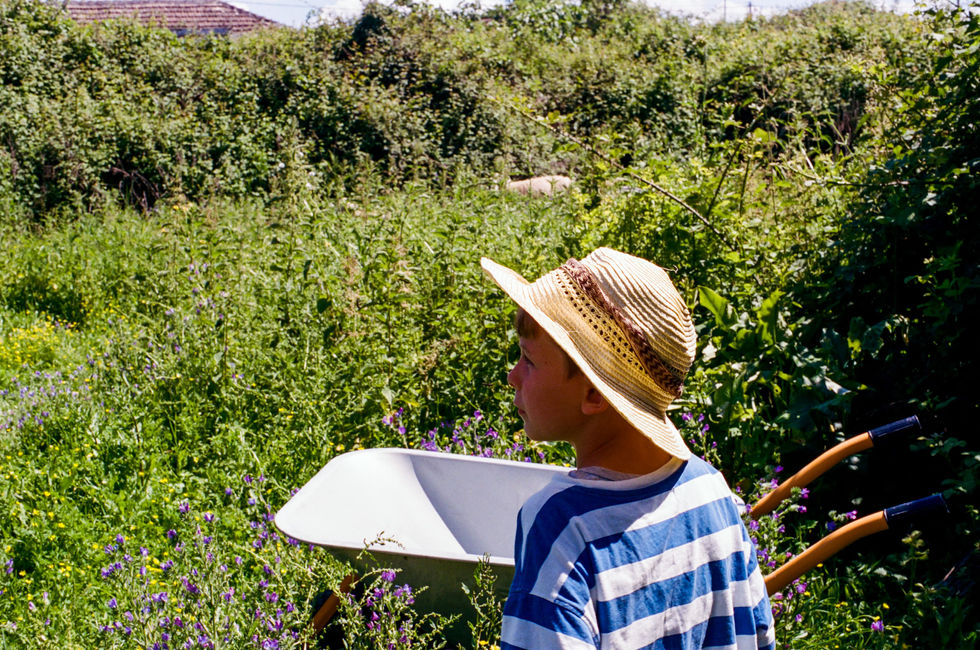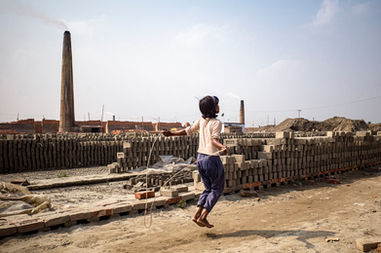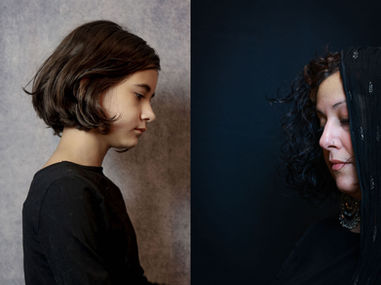
PICTORIAL STORY
August 24, 2024
THE RED POPPY AND THE SUN
Photography and Story by Mei Seva
Introduction by Melanie Meggs
Mei Seva is a storyteller who uses her camera to capture moments and reveal the layered narratives of human experience, migration, and socio-political transformation. Born in Elbasan, Albania, Mei’s journey as a documentary photographer and visual artist finds its heart in the profound dislocations of leaving one’s homeland — a journey she intimately understands.
Mei’s photographic exploration spans continents, echoing the reverberations of her own familial upheavals. Now based in New York City, United States, her work resonates with hues of migration’s melancholy and the stark realities of inequality. Her images, imbued with a serene palette and a tender gaze, juxtapose the tranquility of form with the weight of human struggle. Each frame tells a story — a testament to resilience, a testament to loss.
Graduating with a combination of Peace and Conflict Studies and Art from Hampshire College in Massachusetts, United States, Mei’s academic journey enriches her artistic perspective, imbuing her work with a profound depth that goes beyond aesthetics. Exhibitions from Portland to London bear witness to her unwavering exploration of societal fault lines, where her photographs serve as conduits for dialogue on environmental degradation, cultural identity, and the enduring impacts of geopolitical unrest.
Her 2022 outdoor installation, funded by the Amherst Arts Council in Massachusetts, shows Mei’s commitment to public discourse, weaving together refugee narratives through photography. It is in these public spaces that Mei's art moves beyond the gallery, becoming a mirror reflecting our collective humanity.
Central to her practice is the narrative of her own heritage, rooted in Albania’s tumultuous past and the harsh realities of economic disparity. Through the eyes of her grandparents, figures etched with both stoicism and sorrow, Mei chronicles Albania’s journey — from the fall of communism to the impacts of neoliberalism.
In her ongoing documentary project, shot on 35mm film, Mei intertwines archival imagery with familial memoirs, painting a tableau of resilience against the backdrop of Albania’s changing landscape. Here, every photograph becomes a testament to endurance, a bridge across generations, and a solemn plea for understanding in a world where borders are both physical and metaphysical.
Mei’s journey is more than an artistic pursuit; it is a quest for empathy and a testament to the power of storytelling. In the chiaroscuro of her photographs, viewers find not just images but reflections of their own narratives — fragments of hope, pieces of memory, and the unyielding spirit that binds us all.
-min.jpg)
There is one photograph imprinted in my brain of my grandpa. The photograph was taken the day I left Albania for America when I was six years old. I am sitting on his lap outside the airport, and he is wearing sunglasses that hide his red eyes, red from the tears.
Despite being thousands of miles apart from them for most of my life, my grandparents have been a guiding force, serving as stable parental figures despite massive cultural and, at times, linguistic barriers between us.
Every year that I choose to go back to the “motherland,” to my family, we are forced to face the pain of goodbyes. How do you say goodbye for 360 days or more, accepting the missed birthdays, holidays, mornings, and nights? “We could fill buckets with all the tears we’ve shed at airports,” said a family member to my grandma, who was expressing sorrow at my leaving so soon.
Touching on themes such as immigration, social inequality, the legacy of communism, and the impacts of neoliberalism, my long-term documentary photography project aims to bridge the gap between Albania’s past and present through the lives of my family, particularly my grandpa, Fatmir Zavalina.
Born to a family of farmers and then a member of the Communist Party from a young age, he has witnessed Albania’s massive social and political upheavals, from the early days of communism to the fall of the regime, a civil uprising, and the country’s slow rebuilding and recent transformations. He is a symbol of Albania’s history and its turbulent past and is the protagonist of this story. However, my grandma and other extended family will serve as supporting characters, aiming to show how my family has been affected by Albania’s political instability.
Albania is one of the poorest countries in Europe and has faced a mass exodus of people since the fall of communism. The Albanian diaspora, estimated at 8 million, is larger than the population of the entire country, estimated at 2.8 million. My grandparents have faced the pains of immigration and family separation firsthand, having both of their children and all three grandchildren leave Albania.
Through archival imagery, family photos, writing, and photographs of sites of significance in my family’s lives, my project illustrates the passage of time and illuminates how political systems affect the lives of everyday people. Shot primarily on 35mm, the analog quality of the photographs lends itself to the conversation with the past my project aims to achieve.

In summary, Mei Seva’s body of work reflects the strength and complexity of human experience in the face of migration and societal upheaval. Through her photography, she goes beyond documentation and offers a thoughtful examination of Albania’s history and its effects on future generations. By blending archival and contemporary images, Mei creates a visual story that captures the ongoing struggles and moments of triumph for those impacted by displacement and circumstance. She transforms personal grief and familial history into a universal language of compassion and resilience. Her work sheds light on the unseen threads of displacement and identity, but also encourages viewers to engage in a larger conversation about the impact of political and economic forces on individual lives. Her work serves as a reminder of the ability of art to bridge gaps, provoke introspection, and foster a deeper understanding of the human experience.

The views, thoughts, and opinions expressed in the text belong solely to the author/s, and are not necessarily shared by The Pictorial List and the team.














































